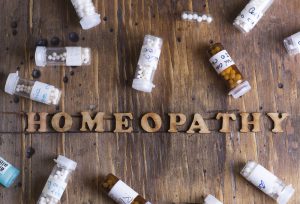In April 2019, the U.S. Food and Drug Administration (FDA) published safety warning letters aimed at four companies who manufacture and market homeopathic drugs. Though homeopathic products do not need FDA approval to remain on the market, the federal agency still monitors and inspects the products to ensure compliance with the agency’s current good manufacturing practice (CGMP) guidelines.
Homeopathic Drugs and the History of FDA Criticism
In 2017, the FDA unveiled a plan to monitor homeopathic drugs marketed without the agency’s approval using “comprehensive, risk-based enforcement.” At that time, the FDA reported a rising trend in products labeled homeopathic but marketed as treatment for everything from the common cold to cancer.
The purpose of risk-based enforcement of homeopathic drugs is to protect consumers from products that:
- Provide little or no relief or prevention for serious ailments.
- May cause harm due to delay in conventional treatments.
- May cause harm due to poor manufacturing standards.
- Many contain active ingredients with side effects not thoroughly tested or disclosed to consumers.
- Have dubious clinical value yet are marketed to vulnerable populations, such as children or the elderly.
- Have dubious clinical value and are intended to be used in ways other than orally or topically.
Their 2017 statement was reportedly in response to a noticeable increase in homeopathic products available for purchase, which included:
- Intra-nasal products containing zinc
- Homeopathic products for the treatment of asthma
- Some homeopathic drugs containing the poison strychnine
Though the FDA supports and respects consumers who want to use treatments outside of conventional medicine, they also have reasserted their responsibility to protect American consumers from products that may not provide any benefit and may potentially cause harm.
The Newest FDA Warnings about Homeopathic Drugs
In April, the FDA addressed homeopathic drugs once again by publishing letters addressed to four makers of homeopathic products. These letters addressed the following:
King Bio
Included in these most recent safety warnings – but also the subject of its own individual recall in August of 2018 – King Bio makes a range of homeopathic products for adults, children, and pets. The FDA’s concerns about their products are centered on the evidence of microbial contamination in their products. The August 2018 communication was related to King Bio’s recall of all water-based products for both human and animal use.
King Bio manufactures products under various labels, including Aquaflora, Dr. King’s Natural Medicine(s), Natrual Pet, and People’s Best. Their pet products were available to both consumers and veterinarians. All the products in the recall were water-based and purported to be useful for urinary incontinence, anxiety, arthritis, and digestion relief.
Red Mountain Incorporated
This Florida company received a publicly available warning letter for lacking quality oversight in their manufacture of products that contained potentially toxic ingredients. The homeopathic drugs potentially even contained snake venom.
Tec Laboratories, Inc.
The FDA warned about the practice of marketing products for children without testing for dangerous levels of microbial contamination. Also, the FDA is concerned that Tec Laboratories did not follow-up appropriately on test results that indicated a high level of microbial contamination in their water system.
Jain Pharmaceuticals
The FDA issued a warning letter to this India-based company after investigators found insects in the facility where the drugs are made. They also found insects in the ingredients used to make their products.
Companies Facing Ongoing FDA Scrutiny
In addition to the four most recent letters, the FDA has sent warnings to the following homeopathic drug companies in recent months:
Nutra Pharma Corp
The FDA claimed the company illegally marketed products labeled homeopathic as being able to treat chronic pain and addiction.
Pure Source, LLC
The FDA sent a warning letter due to the company’s use of contaminated raw materials for their homeopathic products. There remains concerned about consumers who place their trust in treatments with negligible benefits in exchange for the risk. The FDA intends to publish a new set of strict guidelines defining the way companies can market and label homeopathic drugs.
Homeopathic Drugs vs. Conventional Medicine
Products labeled homeopathic have not been approved by the FDA, which means they may not meet the agency’s standards for quality, safety, or effectiveness. Despite this distinction, homeopathic drugs are often marketed as natural, safe, and effective alternatives to conventional treatments. Some homeopathic drugs are even marketed as competitors to FDA-approved pharmaceutical products.
So, who is right? Is the FDA right to warn consumers about homeopathic drugs, or are homeopaths correct in asserting that even FDA-approved medicines can harm consumers?
The crux of the debate is the wealth of anecdotal and observational evidence that indicates people do feel better after using homeopathic drugs, but that this fact has yet to be causally linked to patient improvement in clinical studies. Homeopathy says science doesn’t understand how their system works, and conventional medicine says homeopathy is nothing more than a placebo effect.
What is Homeopathy?
Homeopathy is an atlernative practice of medicine that uses a natural or holistic approach to healing. The term “homeopathy” is derived from Greek and Latin, meaning “like disease.” The origin of homeopathy dates back to the 18th century, but has had something of a rebirth in recent years.
The core principles of homeopathy are:
- “Like cures like,” which means if a substance causes a symptom, then it can be used as an effective remedy for an ailment that presents the same symptom. For example, using onion to treat a runny nose.
- “Minimum Dose” – The dilution of active ingredients in homeopathic products supposedly renders them more, not less, effective for their intended use. Using a minimum dose also reduces the risk of side effects.
- “Single Remedy” – Homeopathic practitioners believe in trying one remedy at a time. The idea is to see how one remedy affects symptoms, and what side effects result. Using multiple remedies simultaneously can cause more side effects or adverse events.
Though these principles are not what you would call scientific, it’s hard to argue with the mountains of anecdotal evidence suggesting that homeopathic drugs work. That’s why so many people trust them. Everyone seems to know someone who swears by homeopathy.
Cynical doctors point to the lengthy, individualized, and compassionate care homeopathic patients receive compared to the impersonal, sterile, and stiff interactions in most conventional clinical settings as the reason for the effectiveness. That is to say, it’s not the homeopathic drugs that cause the positive outcomes, but rather the focused attention from a caring medical professional.
If that’s the case, then what’s wrong with a little homeopathy?
Take a Cautious Approach to Homeopathy
Some consumers question where the harm is in a placebo if the result is that the patient gets better. It’s a compelling question, especially for the care of routine health concerns and illnesses.
Concerns mount when consumers continue to rely on homeopathic drugs for more serious illnesses. Assuming homeopathic drugs are simply placebos, and that most contain highly diluted active ingredients, they must be devoid of side effects. Any treatment that does not harm patients, but has a chance of making them better can’t be all bad, right?
Before making up your mind that treating a serious illness with a purported placebo is acceptable, consider:
- Placebos effects are not reliable. Not every patient will experience a placebo effect in every case or every time they use a homeopathic remedy.
- A placebo rather than a conventional treatment with a measurable track record may endanger the health of the patient.
- Patients can experience the placebo effect without the use of a placebo. If physicians were to administer all treatments with compassion and empathy, patients would receive both the benefits of the effect associated with homeopathy as well as scientifically-backed treatment options.
The most important thing to remember is to put your health first. You may believe in the power of all-natural remedies, or believe that homeopathy is nothing more than a placebo effect. Be open-minded about treatment options, and choose the methods that are right for you. There are positive and negative elements of conventional medicine and homeopathy.
It is advised to consult with a healthcare practitioner who is experienced in a particular area of healthcare prior to trying remedies.
Concerned about the Dangers of Homeopathic Drugs?
Homeopathic drugs are not medicine in the conventional sense. However, the companies that make them market their products in a way that makes them seem like a legitimate cure for the uses on the label. At the moment, companies can make pretty wild and far-fetched claims about their products as long as they include the disclaimer, “These statements have not been evaluated by the U.S. Food and Drug Administration.”
There are definitely benefits to homeopathic remedies for some illnesses. Nevertheless, patients should use caution when treating any medical condition outside the advice and guidance of a medical professional. Manufacturers make claims, and when not supported by the FDA, these claims may result in more harm than good.
Manufacturers are liable for their products, claims made about them, and harm their products cause consumers. If you or someone you love has developed an illness or has been injured due to homeopathic drugs, contact Drug and Device Watch. We can help you understand your legal rights, and determine if you have a claim. Call us at 1-888-458-6825, or submit our online contact form to request a free consultation.
Sources:
- https://www.pharmacytimes.com/news/homeopathic-drug-products-focus-of-fda-warning-letters
- https://www.healio.com/internal-medicine/pharmacology/news/online/%7B483f208a-5d8e-4a15-88e4-bab0381f0348%7D/fda-proposes-new-plan-to-protect-against-potentially-harmful-homeopathic-drugs
- https://www.theguardian.com/science/blog/2012/apr/03/homeopathy-why-i-changed-my-mind
- https://homeopathyusa.org/homeopathic-medicine.html

